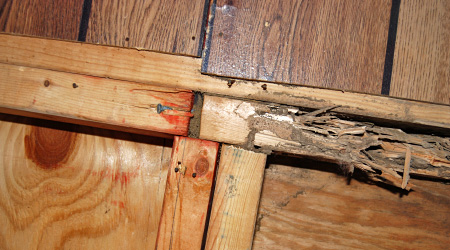What Will A Good Home Inspector Tell You?

A good home inspector will provide a comprehensive and detailed analysis of a residence for the prospective home buyer to ensure that the structure is free of any significant defects. Home inspections are required for primarily to different reasons; providing peace of mind to the prospective home buyer that the structure meets all city and state code requirements and to reassure the mortgage lender that the loan being issued is protected from any sort of fraud or misrepresentation by the home seller.
Home inspectors are licensed by the state and therefore must fulfill certain requirements when conducting inspections. At a bare minimum a home inspector will address any deficiencies in a structure as they pertain to code enforcement and building codes. Ideally however, a home inspector will go above and beyond the call of duty and address both structural deficiencies and cosmetic damages and inform the perspective home purchaser of all findings.
During a home inspection it is customary for both the home seller and perspective home purchaser to be on-site although this is not a legal requirement due to some individuals inability to be available at the time of the inspection. A good home inspector will not only fulfill the requirements of thoroughly analyzing the structure but they will also take the time to demonstrate or address any deficiencies to both parties so they have a clear understanding of what is being reported on the home inspection. Because of the hands-on nature it is prudent for a potential home buyer to take the time to ask questions regarding certain issues being addressed and discuss whether or not they could be considered deal breakers or are something that can be fixed inexpensively at a later date.
Quality home inspection involves a thorough analysis of the overall structure and covers many areas of interest which include but are not limited to the foundation, the roof and pest infestation. When examining the foundation the inspector will look for cracking in excess of 1/4 inch and any type of degradation in the concrete such as crumbling. When examining the roof they are looking for not only obvious signs of leaking and water damage but also worn shingles which may need to be replaced and rafter bowing which could lead to structural failure. In certain areas of the country termite infestation can be a serious problem. So a primary concern is looking for pest damage either by carpenter ants or termites which could cost thousands of dollars to repair or may make the home possibly uninsurable which could prevent obtaining a mortgage.
Inside the home, a thorough home inspector will evaluate anything that would normally have a bill, so basically all utilities. The inspector will examine the breaker box to ensure it is up to code or hasn't been modified as well as testing all light switches and outlets to ensure they are in proper working order. The home inspector will also activate the heating and cooling system to determine both are working properly and that the correct airflow and temperature is being provided through the ventilation system. Normally these types of examinations turn out fine but problems can occur when existing homeowners make modifications on their own and are not done by licensed subcontractors. If such situations are found it may be a mandatory requirement to have the modifications fixed correctly before the home sale proceeds.
Another area of concern that a quality home inspector will evaluate is the water system. Flushing toilets, turning on showers and running the dishwasher are all activities that a good home inspector will address. This is to provide peace of mind that everything is working correctly prior to the new homeowner moving into the residence. A good home inspector will go so far as opening and closing doors, operating ceiling fans and checking the functionality of the garage door opener as to limit any possible surprises which could cost the new homeowner money.
The key to a good home inspection by a quality inspector is thoroughness. Any inspector can check the basic and obvious such as readily apparent water damage or garage door that only opens halfway but you want an inspector that does everything humanly possible to ensure that every T is crossed and every I is dotted. A home inspector will normally not make recommendations in terms of referrals or costs for fixing various defects. However, they should have enough experience and knowledge to provide insight of what needs to be fixed immediately and what can wait. When working with your home inspector it should be clearly evident if they have your best interests at heart and are doing a thorough job. If the home inspector is not doing what you would consider a complete job then get a different inspector. Owning a home is the largest expense most individuals will have and it is important to make sure you have people protecting your interest.
Elsewhere on StockMonkeys.com







